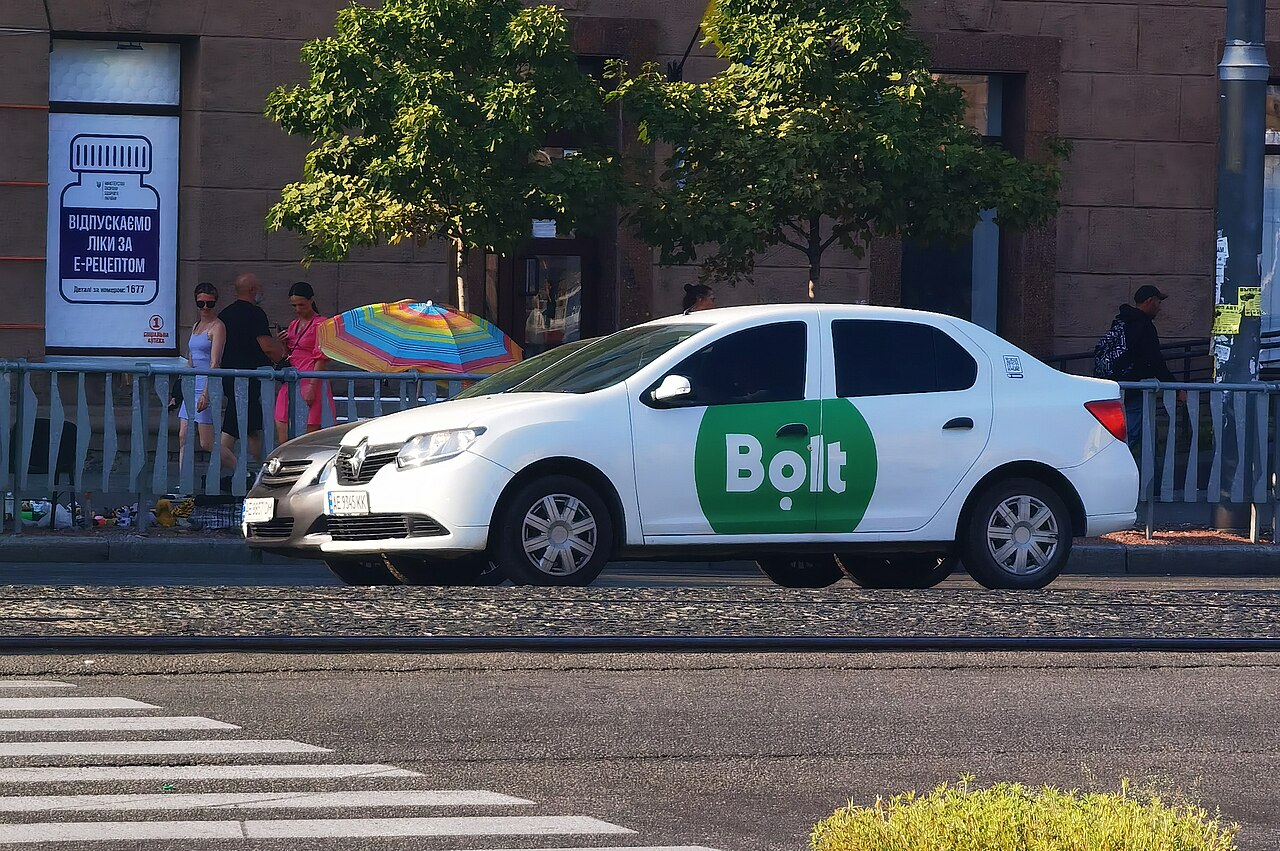It’s that time of year again – the South African government is about to tell us how it plans to spend the money in our national wallet. Tomorrow afternoon, the Minister of Finance, Enoch Godongwana, will deliver the 2025 Budget Speech in Cape Town. But before you zone out – yes, we see you – this isn’t just a boring money talk. It’s about where your taxes go, how government policies turn into action, and, ultimately, how it all affects your pocket.
Carol Paton, a seasoned business journalist and current Writer at Large at News24, spoke to us about why the budget matters: “The budget is the government’s most important policy statement of the year. It’s where we see whether policy ideas actually get funded and if government can balance the books.” Somesh Jha, a business and finance journalist with over a decade of covering public budgets, agreed, calling it a “crucial tool for public accountability”.
Think of the State of the Nation address that President Cyril Ramaphosa just delivered as the nation’s equivalent of the CEO outlining his plans for the year. The budget speech, which follows a few weeks later, is a bit like the company CFO detailing how we’re going to pay for all those plans.
Here’s what you need to know:
What’s in the budget, and why should you care?
The budget is the country’s financial blueprint for the year. It lays out:
➡️ The state of the economy
➡️ Proposed tax changes (yes, the part that directly affects your wallet)
➡️ How government funds are divided between national, provincial, and local levels
➡️ Spending plans for key departments like Health, Education, and Defence
With limited resources and endless needs, budgeting is about priorities. And in South Africa, two-thirds of spending is focused on delivering social rights guaranteed by the Constitution. So, whether it’s grants, school funding, or healthcare, the budget directly impacts your life.
The budget cycle: More than a one-day event
While we only hear about the budget on speech day, it actually takes 14 months to prepare. That means by the time the Finance Minister presents this year’s budget, next year’s budget will already be in the works.
It’s all part of a Medium-Term Expenditure Framework (MTEF) – a three-year financial plan. The first year’s budget is set in stone, while the next two years are adjusted annually to reflect economic realities.
As Paton explains: “The budget is a three-year budget for how the country is going to spend its money, where it’s going to get its money from and how it’s going to spend it.”
Key issues you should keep an ear out for this year
Beyond the numbers, certain pressing issues will define this year’s budget:
1️⃣ Social Grants and Welfare Spending
With millions of South Africans relying on government grants, all eyes will be on whether these payments increase in line with inflation. Paton explains, “For many people – at least 12 million of them—the value of the social grant is very important. Is the social grant going to be raised in line with inflation, or is it going to shrink in real terms?”
2️⃣ National Debt and Fiscal Deficit
South Africa’s debt burden continues to grow, with debt servicing costs eating into funds meant for essential services. Our government debt for 2024 stands at 75.1% of our Gross Domestic Product (GDP). Servicing that debt is expensive. Estimates show that for every R1 that the government spends, the amount that is spent paying off debt has risen from 7 cents in 2009 to 22 cents. What does this mean exactly? Picture this: you earn R10,000-00 a month but have to spend R2,200-00 towards paying off your debt each time your paycheck rolls in. This leaves you with R7,800-00 to survive.
That’s exactly what’s happening to South Africa, and it’s the worst we’ve been at. In 2008, the debt was only 23.5%. The government is borrowing more and more to cover its expenses, but now, a massive portion of its income (tax revenue mostly) is being used just to pay back interest on those loans. This means there’s less money for critical services like schools, hospitals, and infrastructure. The more debt grows, the worse it gets – like being trapped in a cycle where every new loan just pays off an old one, with nothing left for what really matters.
To cover the shortfall, you take a loan. Now, every month, a chunk of your salary goes toward paying back that debt, leaving you with even less money for essentials like food, rent, and transport.“The key elements are growth, inflation, debt – how much debt the government has and how much it’s going to spend. We’ve had very severe budget cuts because we have a long history of borrowing too much and not growing the economy. If you borrow and you don’t grow, then more and more of your income gets eaten up by debt costs,” says Paton.
3️⃣ Tax Hikes
How will the government make up for this debt? By getting in additional funds, of course. Imagine SA was a stokevel with the government, business and citizens being members. The government spends more than we bring in, forcing the entire stokevel into the red. To help get things back on track, its members have to contribute more and more to the pool. This is where the problem arises as this contribution may come in the form of a tax increase, a manoeuvre that is not very popular nationwide.
There are different kinds of taxes continuously at play. But the big ones typically affecting the everyday South African directly are:
💸 Value-added tax, an indirect tax on the consumption of goods and services, which currently sits at 15%. An increase in this means an increase in the price of essentially everything.
💸Personal Income tax, a tax you don’t have to pay if you earn less than a certain amount (this number is R95,750 for 2025 if you are below 65 years old). In order for more money to go into the stokevel, this threshold could decrease, forcing more people to pay. They could also increase the percentage you pay depending on your income bracket.
💸Sin tax, a levy placed on certain products that are not necessarily essential for daily survival but has an impact on health and social behaviour. In 2024, excise duty on alcohol increased by between 6.7 and 7.2%. And now there is worry it may increase even more.
Anything to do with tax should be covered in this plan and influence other aspects of the plan. “Tax hikes or cuts, for example, can influence everything from consumer spending to business investment, making the budget a key factor in shaping a nation’s economic direction”, explains Jha.
Godongwana is under increasing pressure to avoid hikes, with members of the GNU threatening to not support his proposals if he does. We’ll let you know what he decides in our weekly Wrap, coming to you on Thursday.
4️⃣ Inflation and the Cost of Living
The rising cost of living affects all South Africans. Take food for example. From December 2022 to June 2024, the total cost of a basket of goods, including rice, milk, bread, peanut butter and chicken, increased 11%, from R967.13 to R1,072.16. Or electricity. The National Energy Regulator of South Africa (Nersa) approved a 12.74% tariff hike, meaning that on April 1, you will be dishing out more to keep the lights on. The cost of living is not small, and inflation make things worse.
“The projected inflation rate is a projection of what they believe inflation will be. So, you’ll want to know if your salary or wages are keeping pace with inflation,” Paton explains. FYI: Inflation refers to the value of the rands in your pocket: how much does a Big Mac cost you in rands over time? That’s inflation. See our full explainer on it here.
5️⃣ Economic Growth and Job Creation
Official unemployment rates, which measure the number of people who do not have a job but are actively looking for one, have fallen slightly (in 2024’s last quarter, the rate sat at 31.9%, dropping from 32.1%). The expanded unemployment rate, however, measures things a little differently. It also includes everyone without a job but also takes into account those who want to work but have stopped looking because they believe there are no jobs available. This number remains at 41.9% in the last quarter of 2024.
Many are looking for signals on how the government plans to stimulate investment and job creation. “Most ordinary people don’t think about the rate of growth in the economy, but the rate of growth of the economy affects them very directly. If you’ve got a slow-growing economy like we have had for the last 15 years, you’re less likely to find a job, or your family members are less likely to find a job,” Paton says.
6️⃣ The US Aid Freeze and its Impact
Despite a recent ruling from a US federal judge issuing a “temporary restraining order” on US President Donald Trump’s freeze on USAID funding, which oversees the President’s Emergency Plan for Aids Relief (PEPFAR) funds of which South Africa is the largest global recipient of, many organisations have yet to receive communication on how to get back to work. This was a wake-up call for many. What do we do if this freeze becomes permanent? In that case, we are faced with filling that gap ourselves. But is that possible?
“What they’re going to have to do in the budget is plug the gap left by the freeze on USAID, which was funding government health workers and HIV/AIDS programmes. About 17% of our HIV/AIDS budget was being paid for by USAID. So, the government will have to allocate money for that, but there isn’t a lot of extra money to be found,” warns Paton.
What happens after the speech?
The budget doesn’t become law immediately. Parliament has to scrutinise and approve it. This happens through:
- Committees grilling the Minister, Treasury, economists, and civil society groups.
- Two bills related to the budget, the Appropriations Bill and The Division of Revenue Bill, being approved by Parliament to put the budget’s plans into action.
But in reality, Parliament rarely changes much in the budget. Opposition parties may suggest amendments, but the ruling party typically shuts them down.
The oversight process: Checking where the money goes
Parliament’s role doesn’t stop at approval – it also checks whether departments are spending money wisely. This is where Budgetary Review and Recommendation Reports (BRRRs) come in.
BRRRs are mid-year assessments that:
- Evaluate whether government departments are using their allocated funds effectively
- Highlight service delivery failures
- Recommend changes for the next budget cycle
These reports, along with the Medium-Term Budget Policy Statement (MTBPS), help shape future budgets and ensure departments are held accountable. Ideally, stronger in-year oversight would prevent poor performance at year-end.
So, the budget is more than just a speech – it’s a roadmap for government spending, a test of priorities, and a tool for holding leaders accountable. And whether you’re watching petrol prices, social grants, or tax rates, it’s something we should all be paying attention to.
You can watch the Budget Speech live at 14:00 on Parliament TV (DSTV Channel 408), through a live stream on Parliament’s website, Parliament’s YouTube channel, and X (Twitter) page.
A previous version of this article incorrectly stated the country’s debt repayment analogy. We apologies for the error.
Kajal holds an MA in Journalism, Media, and Globalisation from the Ludwig Maximillian University of Munich. She has previous experience in African-focused humanitarian media and transnational newsrooms. The enduring power of words in shaping the narrative of tomorrow remains the foundation upon which she builds her career.




